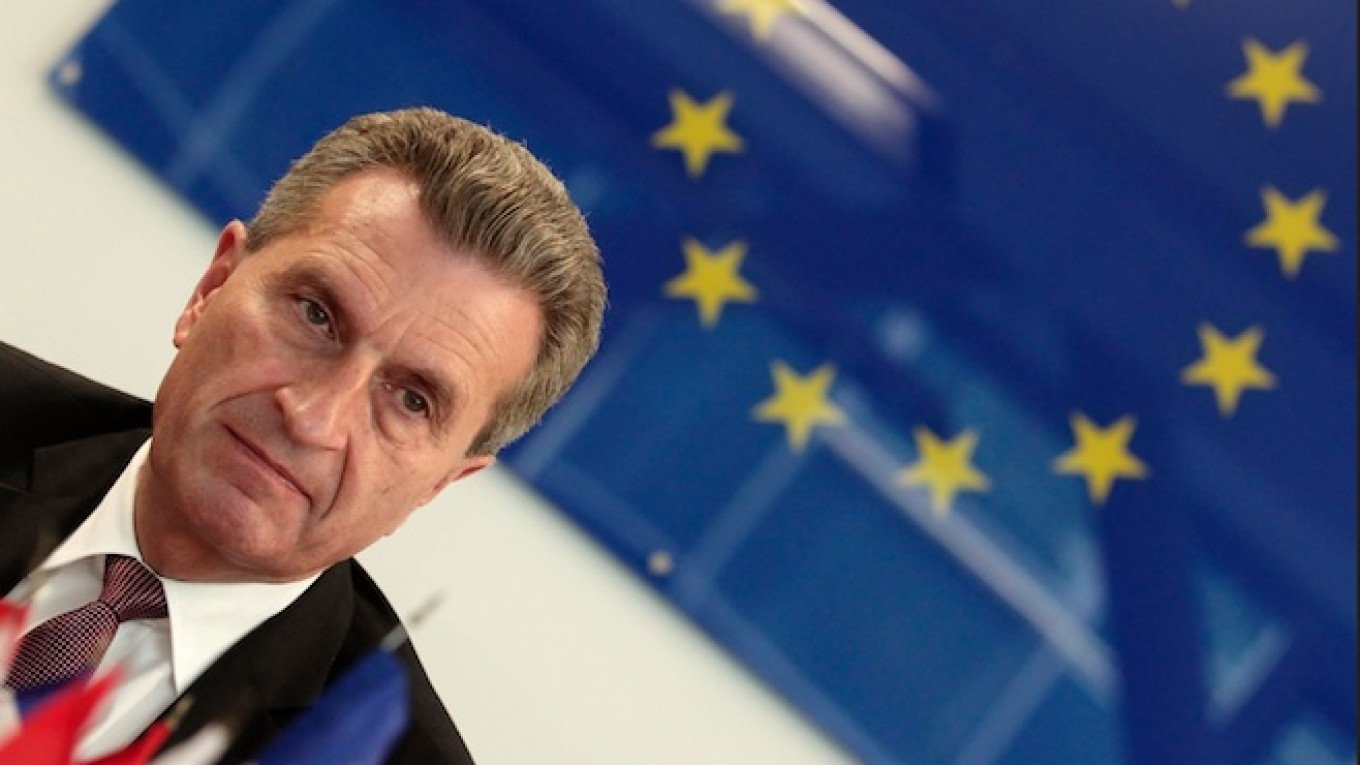Russian Energy Minister Alexander Novak plans to meet European Union Energy Commissioner Günther Oettinger late next week for gas supply talks, Russia’s Energy Ministry said in a statement.
The planned talks would follow weeks of debate to try to solve a dispute over how much Russia charges Ukraine for its gas, which has led Russian gas company Gazprom to cut off supplies to Ukraine.
During a telephone conversation between Oettinger and Novak, the two sides “agreed to hold a bilateral meeting at the end of next week … to address the key issues of EU-Russia relations in the energy sector,” the Energy Ministry’s statement said.
Separately, the European Commission said Novak and Oettinger had agreed to schedule a meeting and that possible dates were being explored.
“The aim is to pave the way for another round of trilateral consultations between the EU, Russia and Ukraine,” commission spokeswoman Sabine Berger said in an e-mailed comment.
A series of three-way talks brokered by the commission in May and June failed to solve the price dispute between Moscow and Kiev.
Ukraine depends on Russia for more than half of its gas needs. The nation is also the transit route for about half of the gas that Russia supplies to the EU, which counts on Gazprom for about 30 percent of its consumption.
Previous pricing disputes between Moscow and Kiev have resulted in knock-on disruptions for EU customers, but no nation has reported problems since Russia cut supplies to Ukraine last month and the amount of gas in storage is ample.
The gas dispute has complicated a wider conflict over Russia’s seizure of Ukraine’s Crimea region earlier this year and Kiev’s decision to seek closer ties with the EU, rather than Moscow.
The telephone talks between Oettinger and Novak on Monday on the gas dispute followed a victory for Kiev at the weekend, when Ukrainian forces routed pro-Russian rebels in a flashpoint area of eastern Ukraine.
The Kiev government has said it will act quickly to seize back more territory from rebels after retaking Slovyansk in what Ukrainian President Petro Poroshenko called a turning point in the three-month conflict against pro-Russian fighters in the east.
See also:
A Message from The Moscow Times:
Dear readers,
We are facing unprecedented challenges. Russia's Prosecutor General's Office has designated The Moscow Times as an "undesirable" organization, criminalizing our work and putting our staff at risk of prosecution. This follows our earlier unjust labeling as a "foreign agent."
These actions are direct attempts to silence independent journalism in Russia. The authorities claim our work "discredits the decisions of the Russian leadership." We see things differently: we strive to provide accurate, unbiased reporting on Russia.
We, the journalists of The Moscow Times, refuse to be silenced. But to continue our work, we need your help.
Your support, no matter how small, makes a world of difference. If you can, please support us monthly starting from just $2. It's quick to set up, and every contribution makes a significant impact.
By supporting The Moscow Times, you're defending open, independent journalism in the face of repression. Thank you for standing with us.
Remind me later.






